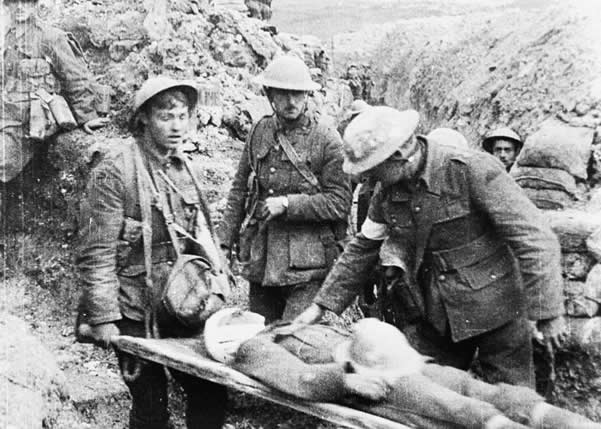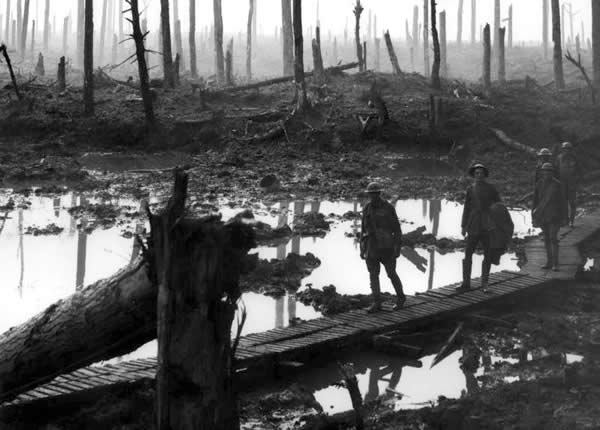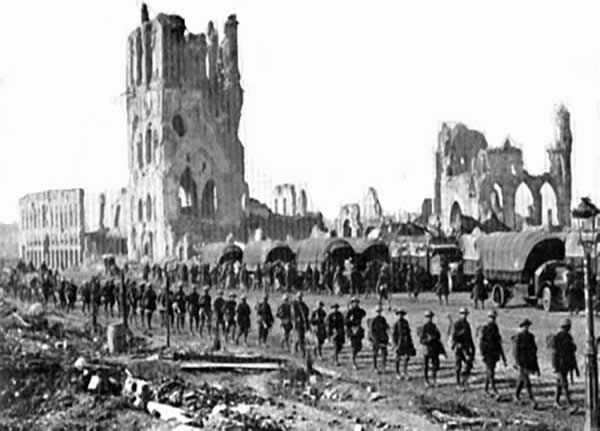Born 26th March 1888 – Died 1st February 1918
7th Battalion of the Royal Sussex Regiment
Ernest and Charles Mardle, twin sons of George Henry and Elizabeth (née Smart) Mardle were born at Cromer Hyde on the 26th March 1888 and baptised at St.John's church, Lemsford the same day. This was George & Elizabeth's second set of twins - Harry and Alfred had been born in 1880. In the 1881 Census their older sister Eleanor, aged 13, is noted as being a mother's help and would have been much needed. They also had a younger brother, Frank, whose name is on the Lemsford War Memorial. Ernest and Charles attended Lemsford School from 1892 to 1902 when they left to work on a farm.
Ernest Mardle enlisted at Hertford in October 1914 and joined the 7th Bn. Royal Sussex Regiment as Private G/15596. The Battalion landed at Boulogne on the 31st May 1915.
Private G/15596 Ernest Mardle was killed on the 1st February 1918 and is buried in grave I. D. 8 of the Croix-du-Bac British Cemetery, Steenwerck, Nord, France which is about 5 miles south-west of Armentieres The 7th Bn. Sussex Regiment had been involved at Cambrai from the 30th November 1917 to the 3rd December repelling a German counter attack 30 Nov-3 Dec 1917 and then from the 24th to the 25th March 1918 at the First Battle of Bapaume.His obituary in the Herts Advertiser & St. Albans Times, Saturday March 9th 1918 reads:- 'Pte. Ernest Mardle, aged 29, Sussex Regiment, single, a twin son of Mr and Mrs George Mardle, Cromer Hyde near Hatfield and brother of Mr Harry Mardle, Alexandra Road, St. Albans was killed in France on February 1st. He joined the Army in October 1914, had been in France for over two years and had been twice wounded. His last leave was taken towards the close of last year and he returned to France on Christmas Day. He was formerly a farm labourer at Water End, near Wheathampstead. His younger brother, Bombardier Frank Mardle, Herts Artillery, was killed in France in June 1916.' Capt. Campbell in a letter to his relatives state that Pte Mardle was killed instantaneously while he was doing his duty like a good soldier. “I can only state” the writer adds “how much I sympathise with you in your loss and say that both the officers and men feel the same .... It may comfort you a little to think that no man can give his life better than your son did and I am certain he gave it willingly in the service of his country”
Attended St Johns School March 21st 1892 – May 29th 1902
| LEMSFORD WAR MEMORIAL 1914 - 1918 |
| TO THE GLORY OF GOD AND IN MEMORY OF THOSE WHO GAVE THEIR LIVES IN THE GREAT WAR |
Commonwealth War Graves
Lest We Forget
Private G/15596 Ernest Mardle was killed on the 1st February 1918 and is buried in grave I. D. 8 of the Croix-du-Bac British Cemetery, Steenwerck, Nord, France which is about 5 miles south-west of Armentieres The 7th Bn. Sussex Regiment had been involved at Cambrai from the 30th November 1917 to the 3rd December repelling a German counter attack 30 Nov-3 Dec 1917 and then from the 24th to the 25th March 1918 at the First Battle of Bapaume.
View MemorialLemsford local History Group WW1 Records
Memories & Letters
Memories from the people of Lemsford Parish – letters from the Front and home and much, much more
Local Parish Magazine
From the Bishop's Hatfield Parish Magazine 1914 to 1918, Church- Social - War Records
Servicemen of Lemsford
War records from 98 men who went to war. We show their memories images and why we should never forget them.
5 Facts the Great War
Battles of WW1

Battle of the Somme
1 July - 13 November 1916The British suffered around 420,000 casualties, the French 195,000 and the Germans around 650,000. Only in the sense of relieving the French at Verdun can the British have claimed any measure of success.

Battle of Passchendaele
31 July - 6 November 1917Passchendaele village lay barely five miles beyond the starting point of his offensive. Having prophesied a decisive success, it had taken over three months, 325,000 Allied and 260,000 German casualties

The First Battle of Ypres, 1914
October 19 to November 22, 1914First Battle of Ypres saw the BEF sustain 7,960 killed, 29,562 wounded, and 17,873 missing, while the French incurred between 50,000 and 85,000 casualties of all types. To the north, the Belgians took 21,562 casualties
